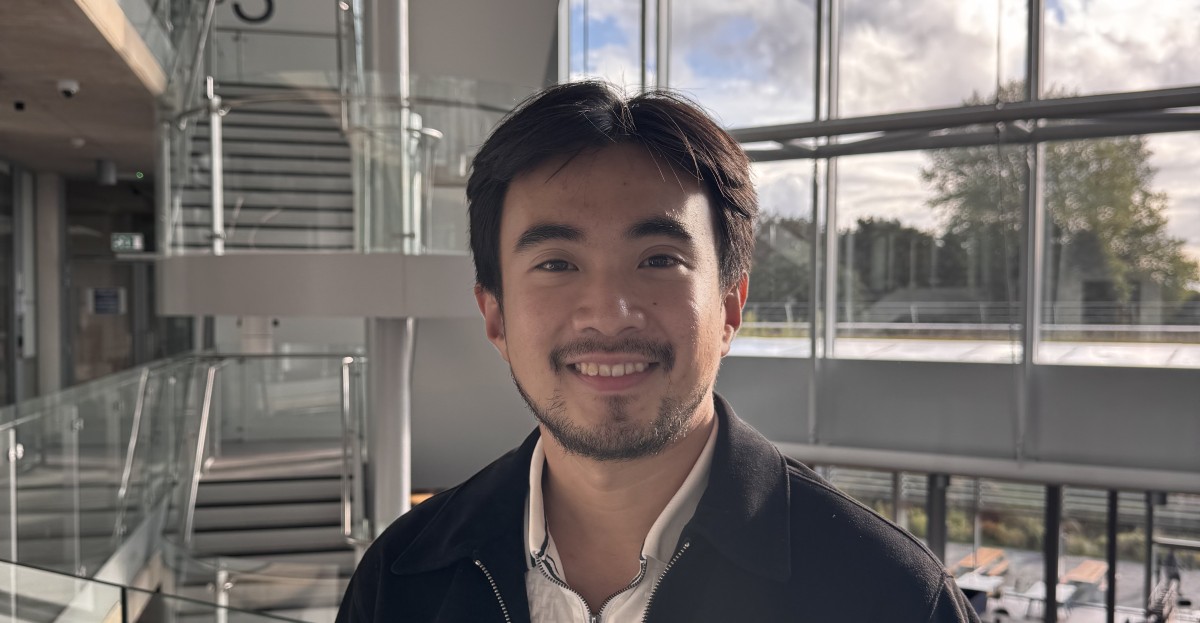Jason is in the third year of an integrated PhD in Management, supervised by Professor Edmund Thompson and Dr Debbie Desrochers, and is a member of the Centre for Business, Organisations & Society (CBOS). Here, he shares his research on how culture affects entrepreneurialism.
What drove you to choose Bath for your PhD?
When I did my master's degree, I came across the works of one of my supervisors, Professor Edmund Thompson. He works on something called entrepreneurial intent, which is the tendency or disposition of individuals to become entrepreneurs. His research really shaped my thinking, because I see entrepreneurship as a process from the beginning to the end.
And so I literally hunted him down! After I decided that I would like to do a PhD, I checked where he worked and I found that he's in Bath. I emailed him, he responded and that's it. Other than that, I also knew that there are also some great scholars in entrepreneurship here, like Professor Dimo Dimov.
What is your research topic and how did you decide on it?
My research focuses on cultural evolution and entrepreneurship. I'm interested in how entrepreneurship both shapes and is shaped by subcultural change. For example, I'm always interested in the question of why did our human ancestors thousand years of years ago decide to begin to trade rather than continue only with hunting and gathering?
One of my supervisors’ research is about entrepreneurial intent. So I'd like to see how cultural changes shape or influence the tendencies of humans to become entrepreneurs.I think it’s interesting because in entrepreneurship research, most of the research sees culture as something that is static. But I'd like to view culture as something that is more dynamic, so it changes over time.
What initially sparked your interest in the topic?
My interest in this topic goes back to my childhood. When I was a child, I was surrounded by books about history – Greek civilisation, the spice trade, Chinese civil wars and so on. This shaped my perceptions about major shifts that happen in societies.
I grew up in a culturally Christian family and we often debated the meaning of the creation story and whether it was a little metaphorical. Those discussions about evolution, combined with my interest in history, made me curious about how human societies change over time. Over the years I realised that this thinking, this curiosity basically about evolution and history, could be combined with my passion for entrepreneurship.
I was also surrounded by entrepreneurs and business owners – a lot of my family members were or are working as business owners or entrepreneurs.
What are your findings so far?
I'm doing the paper-based format for my PhD and at this stage my research is mostly conceptual, mostly theoretically based, but I will begin my data collection soon.
Right now I'm interested in propositions about how cultural evolution shapes entrepreneurial intent, and it's already interesting because we know that individuals have different tendencies to become entrepreneurs.
This openness can be shaped by personality traits – for example, some individuals, are more curious, some are more anxious, some are more open to new things – and I argue that culture change influences how this individual's tendencies are expressed.
From a Darwinian perspective, culture can act as a selective environment. Some traits that might have not led to entrepreneurship in the past can become highly adaptive in a new context. So those people that are more anxious, in the past they probably didn't have the tendency to become entrepreneurs, but with the help of AI, say, they probably can open a business from the comfort of their home.
How could your research be applied in a real-world setting?
I think the implications will be quite practical. We know that culture is constantly changing through globalisation, new technologies, and environmental challenges such as global warming.
For example, we know global warming will increase a lot in the coming years, and that might change our behaviour. Some of us probably will become more pro-environmentalist, and so they might open different types of businesses.
This perspective can help policymakers and entrepreneurs themselves to recognise that supporting entrepreneurship is not just about economic growth, but also about guiding the cultural directions that our societies will go in.
What advice would you offer to others studying or considering a PhD?
A PhD takes a very long time, so future PhD students should choose a topic that they’re really passionate about, they deeply care about and are deeply curious about.
We also need to let the ideas evolve. We don't want our ideas to remain stuck in one zone and never change because we just think that that's the best. The great thing about a PhD for me is not just about finding an answer, but also about refining better questions.
Respond



